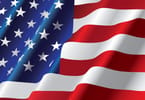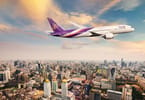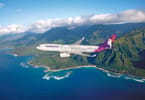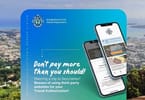Changing your ticket on JetBlue now costs $100. The change went into effect on May 1, according to JetBlue spokesman Sebastian White. Previously, the charge was $40 for changes made online and $50 for those made over the phone.
“The cost of fuel is rising faster than airline fares are,” White says in an e-mail to Today in the Sky. “We are adjusting some of our fees in order to help offset the high and rising cost of fuel. Customers who use and pay for these extra services or products help keep fares competitive for everyone,” he says.
However, JetBlue is not alone in boosting its fee for changing tickets. United announced in late April that its fee for changing tickets was jumping to $150, up from the previous $100. That fee hike was “matched soon afterward by US Airways,” according to Business Travel News Online (BTN). That publication says “the nonrefundable fare change fee increase is just the latest in a string of new or raised charges, as carriers crippled by skyrocketing fuel costs seek new methods of revenue generation.”
In addition to increasing revenue, hikes in airlines’ change-of-ticket fees are also likely an effort by the carriers to encourage fliers to buy higher-priced tickets with rules that allow refunds or fee-free changes. But higher fees may not be enough to push customers in that direction. BTN writes higher change fees “will increase the cost of corporate travel, but most analysts said it likely won’t alter buyers’ fare-policy strategies.” Barry Rogers, director of Chicago-based TCG Consulting’s aviation practice, tells BTN: “If we get hit every time we make a change, then are we better off buying a refundable ticket, spending a bit more up front to avoid the fee? What’s the tradeoff between the two?”
He says the tradeoff often may still favor buying the cheapest-available fare. “For example, a refundable ticket on United from Chicago O’Hare to Washington National is $593 roundtrip. The lowest nonrefundable, at this moment, is $281. The difference is $312. At that point, you could make two changes and still end up ahead, assuming the required class of service remains available,” he explains to BTN.
Meanwhile, aviation consultant Robert Mann of aviation consultancy R.W. Mann and Co., offers this take to BTN: “The airline industry has the propensity to introduce or reintroduce policies and terms to garner additional fees to force people to buy things they don’t want, as opposed to doing the things people so want. These issues have been put back in to make sure business travelers pay more,” he says.
usatoday.com
WHAT TO TAKE AWAY FROM THIS ARTICLE:
- “If we get hit every time we make a change, then are we better off buying a refundable ticket, spending a bit more up front to avoid the fee.
- That publication says “the nonrefundable fare change fee increase is just the latest in a string of new or raised charges, as carriers crippled by skyrocketing fuel costs seek new methods of revenue generation.
- “The airline industry has the propensity to introduce or reintroduce policies and terms to garner additional fees to force people to buy things they don’t want, as opposed to doing the things people so want.






















